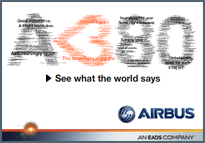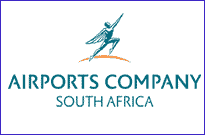Nigeria: Nigeria Transportation Profile 2012
2012/03/21
Nigeria Transportation Profile 2012
Shipping Report Q4 2010
Although we are relatively upbeat about the outlook for the local ports and shipping sector, there was a mid-year reminder of its ability to generate policy disputes. In late June the Nigerian Association of Chambers of Commerce, Industry, Mines and Agriculture (NACCIMA) was heavily critical of the Cargo Tracking Note (CTN), a controversial foreign currency levy imposed by the Nigerian Ports Authority (NPA). NACCIMA president Simon Okolo said that the CTN was 'inimical to private enterprise and harmful to the economy'. In his view, it added nothing to the existing bill or to maritime security, already looked after by another body, the Nigeria Maritime Administration and Safety Agency (NIMASA). He said that the CTN was likely to cause further delays within the supply chain.
Political uncertainty appears to be waning. As Nigeria entered the second half of 2010 it looked as if a period of relative stability had begun: a good sign for the local ports and shipping sector. A major constitutional crisis had been averted, coup d'etat scenarios had receded, and a new president, Goodluck Jonathan, was in place committed to steering Nigeria to new general elections in 2011. Major political challenges remained - including the important question of electoral reform - but the situation was clearly calmer than in early 2010. On the macroeconomic front the country was enjoying a strong recovery with GDP set to grow by 7.5% in 2010, supported by domestic agriculture and retail consumption. We predicts similarly strong growth in 2011 (GDP expansion of 7.4%), and for the five-year forecast period to 2014 we project average annual GDP expansion of 7.4% - making the country an outperformer among emerging markets.
We expect good total tonnage growth as the economy gathers pace. However, this growth will be somewhat muted at the Port of Lagos (Apapa) because of its ongoing congestion problems. We are projecting an increase in volume at Apapa, up by 6.7% to 17.119mn tonnes, after 7.2% growth last year. We believe growth here will remain constrained, with the annual average over the 2010-2014 period coming out at 6.0%, below the general growth rate of the Nigerian economy. For comparison, mediumterm growth rates at the country's other ports will be higher: 10.0% per annum at Tincan Island, and 8.6% at Port Harcourt, for example.
In real terms, we expect Nigeria's total trade (imports plus exports) to gather pace this year, following muted growth in 2009 when the rest of the world was experiencing a trade slump. Nigeria's total trade grew by 4.8% last year, and we are projecting growth of 7.2% in 2010. Looking forward across our fiveyear medium-term forecast we expect annual average trade growth in real terms of 7.4%. Indicative of an expected rebalancing of the economy towards the services sector, with a little less reliance on the central oil and gas sector, we expect average annual growth of imports over the next five years, at 7.5%, to be ahead of the growth of exports, at 7.1%.
Perhaps surprisingly we believe the major risk to out Nigerian ports and shipping forecasts is on the upside. This is not to discard the usual suspects on the downside, including rebel activity and power shortages. Our view is that reforms in the telecoms and oil and gas sector, together with a rebalancing of the economy towards services and the domestic market, could within the net few years take annual GDP growth from the current high single percentage figures into the low double digits - a development that would lead to a proportionate boost to shipping and port demand.
the International Maritime Bureau reports the territorial and offshore waters in the Niger Delta and Gulf of Guinea as high risk for piracy and armed robbery against ships; numerous commercial vessels have been attacked and hijacked both at anchor and while underway; crews have been robbed and stores or cargoes stolen
- Nigeria News
-
- NIGERIA: The Federal Government Begs Dangote to Complete Refinery Before 2019
- BOTSWANA: Children on the move from Africa do not first aim to go to Europe, new UNICEF study shows
- BOTSWANA: WHO lauds Africa’s progress in malaria, HIV control
- ETHIOPIA: Envoy cautions Nigerians on currency declaration in Ethiopia
- SOUTH AFRICA: South African President, Jacob Zuma
- NIGERIA: Osinbajo tasks African petroleum-producing countries on reforms
- Trending Articles
-
- ITALY: Italy seizes NGO rescue boat for allegedly aiding illegal migration
- KENYA: Kenya's new $3.2 billion railway frustrates customers ahead of polls
- GUINEA: Thousands protest against Guinea's Conde over election delays, insecurity
- SOUTH SUDAN: South Sudanese refugees in Uganda near million mark
- TANZANIA: Tanzania: Searchlight Cast On Barrick ...as the Government Seeks Fair Share of Mining Sector Revenues
- CHILE: Chile presidential candidate Pinera would modify pension system









